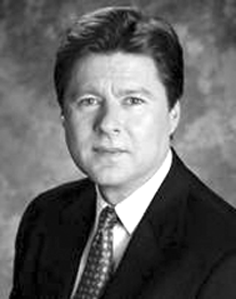Winnie Stachelberg moves to educational foundation; David Smith quietly returns
This past week The Human Rights Campaign, the nation’s largest lesbian, gay, bisexual and transgender (LGBT) political group, has undergone another major readjustment at the senior levels.
A press release dated February 3 announced that political director Winnie Stachelberg is assuming the newly created position of vice president of the HRC Foundation.
The Foundation is HRC’s educational wing, charged with bringing information about LGBT issues to mainstream America, as well as acting as a resource for LGBT people. Among Stachelberg’s new duties will be the development of a Religion Project, which according to the press release, will "research and develop the language and messages to effectively discuss GLBT issues with people of faith."
What the press release didn’t mention was the creation of a new vice president of policy and strategy, as well as the renaming several upper-level management positions and the creation of the Marriage Project.
The position of president, held by Cheryl Jacques until her abrupt resignation on November 30, remains unfilled.
Gone is Stachelberg’s political office, that managed advocacy in Washington, now combined with the field office, that until now performed a similar function outside the capital.
"This will not only make fewer direct reports necessary to the head of the organization, but streamline the various departments, said Steve Fisher, HRC’s communications director. “It makes sense to have greater coordination among our grassroots initiatives and our national efforts. We all know what happens in Congress tends to affect the states and vice versa.”
Fisher said this integrated model was temporarily employed during HRC’s efforts to block approval of Federal Marriage Amendment in the House and Senate last year. The reorganization was made permanent now so the new president, expected to be chosen in the spring, will "hit the ground running," he added.
David Smith, former HRC communications director, and for the past year, spokesman for Sen. Edward Kennedy (D-Mass.), will occupy the policy and strategy position.
Smith will have broad oversight coordinating HRCs advocacy on the federal and state levels—affecting how and where the organization fights anti-gay measures and pushes for supportive legislation, the control of lobbying on Capitol Hill and the fight for marriage and other rights at the national level and across the country. Fisher said that under the old structure of HRC, each of these functions was semi-autonomous, and reported to the head of the organization. Smith will also oversee HRC’s interaction with the media via the communications department.
Smith departed HRC around the time Jacques’s was hired. He returned as a consultant immediately after her resignation, to do legislative strategy and what Fisher characterized then as "broad programmatic kinds of things," including "devising a program for the coming year."
Could those “things” be characterized as the typical terrain of an executive director or president?
In an interview this week, Fisher would not say whether Smith’s new office, given the purview of essentially determining how the nation’s largest and best endowed LGBT advocacy group leads the fight for gay rights, was a stop on the way to HRC’s highest position.
Jacques resigned, citing "a difference in management philosophy," ending a tenure only slightly longer than the ten months it took to recruit her. A source familiar with the situation claimed Jacques was fired because many HRC board members were unhappy with her management style.
The organization had been criticized by some for endorsing John Kerry’s presidential bid while also claiming to be bipartisan, and alienating mainstream Americans by aggressively championing same-sex marriage rights. Jacques, a former state senator in Massachusetts, was also criticized for her unfamiliarity with Washington political minutiae.
Soon after Jacques’ departure, The New York Times quoted unnamed sources on the HRC board who indicated the organization might back off the fight for marriage equality and also endorse Pres. George W. Bush’s effort to privatize Social Security, if gay people gained the right to make their partners eligible for survivor benefits the way married heterosexual couples are.
HRC denied any such wavering on the issue of marriage. At the time of the Times’ flap, Stachelberg told Gay City News, “We’re pursuing marriage where we can, and other initiatives where those are possible, in collaboration with other state and national organizations."
Seth Kilbourn, former head of HRC’s field operations and now the director of the new Marriage Project said that, "it is not at all the case," that his position was created in response to the furor among LGBT advocates nationwide over the New York Times article.
“We have done a lot of work on marriage,” Kilbourn said. “Frankly, we’ve spent the most money and resources of any gay group. We want to be the point man on the issue and work in collaboration with national and state allies."
And HRC has some major work ahead. The turf in Washington is decidedly hostile. A very conservative party, elected partly on a backlash against the recent gains made by the LGBT community, controls the White House and Congress. Already the Senate has geared up for re-consideration of the Federal Marriage Amendment, with the House following suit this week. The gay-inclusive hate-crimes bill again failed at passage last year, and there is yet no viable gay employment non-discrimination legislation. Thirteen states passed anti-gay marriage amendments to their constitutions last year, and another ten are set to consider them by 2006.
“The reorganization will allow HRC to work as effectively and efficiently as possible, as well as move more boldly when confronting these issues,” Fisher said.
gaycitynews.com



































